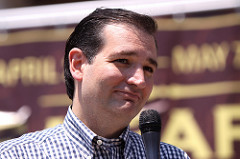Category Archives: Newsroom
In sum, PT has won four straight national elections – the last one occurring just 18 months ago. Its opponents have vigorously tried – and failed – to defeat them at the ballot box, largely due to PT’s support among Brazil’s poor and working classes.
So if you’re a plutocrat with ownership of the nation’s largest and most influential media outlets, what do you do? You dispense with democracy altogether – after all, it keeps empowering candidates and policies you dislike – by exploiting your media outlets to incite unrest and then install a candidate who could never get elected on his own, yet will faithfully serve your political agenda and ideology.
That’s exactly what Brazil is going to do today. The Brazilian Senate will vote later today to agree to a trial on the lower House’s impeachment charges, which will automatically result in Dilma’s suspension from the presidency pending the end of the trial.
Source: Brazil’s Democracy to Suffer Grievous Blow as Unelectable, Corrupt Neoliberal is Installed
The most obvious victor of Dilma’s downfall is the interim President Michel Temer, former Vice President and leader of the Brazilian Democratic Movement Party (PMDB). Though he had been in coalition with the Workers’ Party, at the beginning of April he led a walkout of Rousseff’s government, galvanising the movement against her.
But Temer should watch his step. A Supreme Court judge has already ruled that he too should be investigated for the same charges which have become Rousseff’s undoing, namely manipulating government accounts during the 2014 election to mask Brazil’s growing deficit. The millions of protestors who have been lining the streets of Brasilia, São Paulo and Rio to call for change and transparency are unlikely to be appeased with the replacement of one corrupt President for another.
To confuse the situation further, the man who was third-in-line for the Presidency has also become a victim of Brazil’s corruption purge. Eduardo Cunha, former Speaker of the lower house, was suspended on Friday after being implicated in the Lava Jato (Car Wash) investigation of the state-owned oil company Petrobras. He is accused of taking $1.4 million in bribes. Cunha, a fellow member of Temer’s PMDB, is one of the most unpopular politicians in Brazil, and showed his cards in December when he approved impeachment proceedings against Rousseff but not against Temer, although they filed at the same time.
Source: The end for Dilma Rousseff, a new era for Brazil? – CapX
I have to be a little skeptical of Emmett Rensin’s essay on “The Smug Style in American Liberalism” because it captures almost exactly how I feel. I’m tempted to offer some pithy quote and say “read the whole thing.” But that’s boring. Instead, I’ll offer three counterpoints to his piece. Rensin attributes too much power to the style. Rensin’s evidence is dangerously anecdotal. Rensins does not sufficiently acknowledge competing “smug styles.”
Rensin’s argument.
Since the end of World War II and especially since the 1960s, liberals in the United States have increasingly adopted what Rensin calls a “smug style” that turns off people who might otherwise be inclined to support liberals’ programs. This smug style is found when liberals insist they know better than those who might disagree with them on any number of issues or policies. This “knowing better” specifically targets the white working class, according to Rensin. Disagreement with putatively liberal policies stems at best from an undue attachment to less important concerns like “guns and religion” and at worst from base motivations like racism or sexism.
Counterpoint No. 1: Too much power to the style.
For the most part, Rensin is discussing a style and not a substance. It’s not so much what liberals advocate as it is how they go about it. “I am not suggesting,” he says, that liberals “compromise their issues for the sake of playing nice.” He’s more concerned about the role smugness plays in alienating potential allies.
Still he hints that smugness leads to the adoption of harmful policies. He claims that “open disdain for the people they [liberals] say they want to help has led them to stop helping those people, too.” However, he doesn’t elaborate on what this means on a practical level.
I therefore wonder if he–and I–perhaps assign too much power to the “smug” style as a style. Even though I can think of specific policies–even policies I support like Obamacare–that in some ways hurt workers, at some point we have to leave off pointing out smugness and engage in accounting for why and how those policies are harmful.
Counterpoint No. 2: Rensin’s evidence is of necessity anecdotal.
With a couple exceptions, Rensin wisely eschews psychoanalyzing liberals’ latte-drinking inner demons. He focuses instead on what liberals say or what is said in favor of causes liberals presumably support. His examples are many, taken from Facebook and Twitter feeds, excerpts from Jon Stewart’s Daily Show, and other venues.
All to the good for his argument. But the anecdotal nature of his evidence limits what he–and we–can say about liberals’ smug style. First, there’s the problem that what is smug for me may not be smug for ye. Sometimes a joke is just a joke and a barb is just a barb. (And for the record while I can’t stand Stewart’s schtick, I really enjoyed watching the Colbert Report, which is even more unrelenting in its critique of a certain brand of American conservatism.)
More important, we see what some people say on Facebook, but not how those same people interact with others in real life. We see what Stewart does and guess to whom his jokes are meant to appeal, but we don’t see the other things the audience laughs at or how they act when they’re not consuming his brand of entertainment.
Rensin’s argument almost has to be anecdotal. It’s not wrong for being anecdotal. And it’s hard in any systematic way to get at what he’s trying to get at. But we–especially those of us inclined to agree with him–should beware of how far we’re taking the evidence.
Counterpoint no. 3: Other styles compete with liberals’ “smugness.”
Early in the essay, Rensin says, “Of course, there is a smug style in every political movement: elitism among every ideology believing itself in possession of the solutions to society’s ills.” But he mostly lets that recognition drop right there. He quickly redirects the reader to liberal smugness: “few movements have let the smug tendency so corrupt them, or make so tenuous its case against its enemies” as American liberalism.
But let’s dwell a little more on the “smug style in every political movement: elitism among every ideology….”
There’s a libertarian smugness, often called glibness or glibertarianism. While I’m not a libertarian, one libertarian-lite policy I have endorsed is a good example of this. I once advanced the opinion that when considering wages and hours regulations (but not health and safety regulations), I prefer the policy that creates more jobs, if bad ones, to the policy that creates fewer jobs, if better paying ones. While I insist I adopted that position out of sincere concern for people less fortunate than me, I can certainly see how someone who works at or near minimum wage would see my position as smug or glib. At any rate, I’m not going to offer my opinion, especially when it’s unsolicited, to the many service workers I encounter. And if I did offer the opinion, I would be inclined to do so apologetically and in the spirit that I don’t really know what their life is like.
Adherents to non-libertarian conservatism can exhibit “styles” that approach something we can call smugness.
Two examples. One: We’ve all heard the “hate the sin, love the sinner” aphorism. On one level it’s offered, I submit, sincerely, in the belief that we all sin and fall short of the glory and that persistence in sin is detrimental to one’s well-being, perhaps more akin to a sickness deserving compassion than to a crime deserving sanction. But alas, as a slogan it has often accompanied attempts to promote “gay conversion therapy” or to deny the right to same sex marriage.
Two: We don’t have to go back too far to remember that voicing skepticism about the 2003 Iraq invasion signaled to some people that one was at best naive or worse, less than patriotic or supported terrorism. The opponents to the war gave their (sometimes inexcusable) tit to the neo-cons’ tat, but that element from the pro-war side was real, too.
Do religious posturing against gays and pro-war patriotism-baiting count as “smugness”? I’m not sure I’d go that far, but it’s a brand of “knowing better” and dismissing dissenting views similar to the smug style Rensin describes.
But seriously, “read the whole thing.”
As I said above, I agree with Rensin. I don’t do so grudgingly, but gladly. He’s got it right. He uses evidence and logic to come to a conclusion that works for me and that I was inclined to accept in the first place. Therefore on one level, you might read this long post merely as an exercise in finding holes in another person’s argument. And frankly, Rensin could not have addressed my points and still written something readable.
But on another level, I do think those of us most eager to find a “smug style” among American liberals need to consider why the very smugsters we criticize might take exception. The goal isn’t only to win, to see our side through to its notion of the good and the just. It’s also to understand and live with each other because in my view that is part of the good and the just as well.
I ran a poll. Limited response, but apparently for my conservative Twitter followers senate balance is not the primary motive for opposing DC statehood:
Question for conservative/GOP tweeps: If it were part of a senate-neutral package, would you support DC statehood?
— Will Truman (@trumwill) May 5, 2016
Also, this tidbit seems to have escaped off into Trump Retweet land:
Since 1984, in every election but one (1992) the more hated candidate in April won the popular vote. pic.twitter.com/TM8hwKWabs
— Will Truman (@trumwill) May 6, 2016
Yes, I do believe that 2016 will be another exception.
After a good deal of reflection, I have come to the conclusion that it is critical for the sake of this country that we all vote to elect Donald J Trump the next president of the United States. Our future depends on it. If we play it right, his presidency may exactly what we need.
Donald Trump obviously loves democracy a great deal. He was outraged at the shenanigans in Colorado, Arizona, and elsewhere. Those were undemocratic maneuvers designed to rob him of the Republican nomination. And Donald Trump, of course, loves democracy. So much so, in fact, that it seems more likely than not that having been elected, he will declare future elections a betrayal of the democratic election that he won. What good is an election if four years later it can be taken from you? If a mere two years after you’re elected some other election can deprive you of your ability to do anything because of congress?
Beyond that, elections are guided by the special interests. Since there is only one Donald Trump, that leaves an awful lot of Not Donald Trumps in congress. Which is, when you think about it, pretty disrespectful to the election that would put him in the presidency. So congress would have to go. So President Trump becomes King Donald I, Protector of the Republic. I’m afraid from here, things will get worse before they get better.
First, there would be a band of rabble-rousers who would not consent to be so governed. The good news is that the US is sitting on quite a bit of unused land in Alaska. It would not be difficult to imagine some sort of arrangement being struck where he would rule Alaska with something of a light touch. In fact, perhaps something could be worked out where Trump’s quality kid, Ivanka, serves as Princess Regent for the area. She can live in New York, for the most part, but act as a sort of conduit between King Donald and the intransigents. It will be important at this point for the people of Alaska to build a fortress for Ivanka, the importance of which will become clear later.
As it happens, Donald Trump is not a Spring Chicken. He’s kind of up there in years. Theoretically, when he dies the crown would pass from Donald Sr to Donald Jr, but there are rumors that Eric is the sharper of the two. It seems as likely as not there would be a contested coronation. Followed by a civil war.
This is where Castle Ivanka comes in handy. Having a smart head on her shoulders, she will probably want very little to do with the second civil war. The Autonomous Regency of Alaska (could then welcome her and her family with open arms. Both of the brothers seem to care for their sisters a great deal, and will likely leave everything and everyone alone while they get it all sorted out.From there, just hunker down.
When it is all over, and most of the country has been ravaged by war and self-destruction, it will be time to rebuild. There will, alas, be no functioning democratic institutions. The armies will be spent having been fighting one another. It will be easy for the Alaska Militia and Canadian Army to come in and take over. Chances are, Canada’s interest in administering over the United States will be somewhat limited. So it will be up to the good people of Alaska and Princess Regent Ivanka.
Ivanka has three children. It is critical at this juncture that we marry one of them off one of Prince William’s children. At that point, our royal families are united. I think there is a rule somewhere in there that means we become part of Britain again.
Which brings us full circle to where we were before the Revolution. Don’t let that get you down, though. Constitutional monarchies have proven to be kind of stable. Now, that is something we would have to ease into. It will be a long, slow rebuilding process. And baby steps are fine. Democracy is a weighty thing, and if there is anything this century and more particularly recent events have taught us, we are simply not equipped for popular democracy. certainly not one with a setup such as ours.
And only Trump can save us from it.
Feds announce much tougher e-cigarette, cigar rule
Matthew Myers, president of the Campaign for Tobacco-Free Kids, says the rule announced Thursday falls short in protecting children because it doesn’t restrict the use of sweet e-cigarette flavors such as gummy bear and cotton candy even though the FDA’s own data shows flavors play a big role in youth use.
Industry experts say treating e-cigarettes, which don’t contain tobacco, the same as cigarettes could lead to such onerous and costly approval that all but the largest tobacco companies would be forced out of the market — and possibly those companies too. Zeller says he expects consolidation in the number and type of products and vape shops.
The Tobacco Control Act requires the FDA to use science to weigh the potential benefits of e-cigarettes against any potential health risk, for both the individual users and the whole population, which Stier says would be all but impossible.
That could force e-cigarette smokers back to regular cigarettes, he says.
E-cigarettes help people trying to quit smoking, says Patricia Kovacevic, general counsel and chief compliance officer at e-cigarette manufacturer Nicopure. She and other e-cigarette advocates cited a Royal College of Physicians’ report last week that showed e-cigarettes’ benefits.
Wells Fargo: FDA E-Cigarette Regs Are Good For Big Tobacco
Since almost all vapor products on the market were released after February, 2007, hardly any will avoid a PMTA and almost no businesses, with the exception of big tobacco companies, will be able to bear the regulatory burden.According to the FDA’s own analysis, the costs of a PMTA are so high approximately 99 percent of products on the market won’t even be put through the process.“Our main concern is that these final deeming regs could realistically stifle innovation, which could dramatically slow industry growth by dis-incentivizing consumer conversion from combustible cigs,” says Herzog.
Source:
Step 1: Create onerous regulations that stifle innovation, remove effective products from the shelves, and consolidate industry leaving only Big Tobacco Standing. Ban any language suggesting any health benefits or that it may be an effect aid to smoking cessation.
Step 2: Use the fact that the only remaining ecigarette companies are tobacco companies as further proof that the products are part of a nefarious Big Tobacco plot.
Step 3: Regulate further. Use the fact that all ecigarette marketing is geared towards things other than health as evidence that it’s all about hooking non-smokers.
Step 4: Let Big Tobacco continue selling their crappy products, inducing few people to quit smoking.
Step 5: Point out that non-smokers are barely switching to ecigarettes anymore, and it’s all about young people. Double down by banning all flavoring except tobacco flavoring.
Step 6: Use the fact that ecigarettes are all manufactured to taste like real cigarettes as proof that it’s all a big gateway effort by Big Tobacco, which as we know are behind all of the (remaining) ecigarette companies.
Step 7: Declare victory, and allow those smokers that could not quit in a way sufficiently inspiring to die.
Lyman Stone wants you to know that Oklahoma City is America and San Jose is not. It’s all America, of course, but some places are more representative than others. (Wasilla, of course, is not especially representative.)
Utah’s tech community is making some waves, and some people don’t like it.
I tend to be sympathetic to second-tier schools that want to hold on to their athletics programs, but Eastern Michigan is one of the few I simply can’t find much justification for. Their senate faculty agrees.
Johannes Haushofer got some publicity for his CV of failures, the degree programs and academic positions he was rejected for. It’s meant to inspire a keep-at-it attitude. Anna Peak has a more dour one.
I once had a(n IT!) job that was so miserably boring that we would draw straws to see who got to sweep the floors, so while I don’t approve of this lawsuit I can sort of understand the trauma.
As the “Public Health” community comes to a consensus that ecigarettes are a menace to be contained, some are still fighting the good fight. Kevin Fenton of Public Health England gives them a relatively clean bill of health.
Ross Douthat’s piece on conservatism’s defeat is worth reading.
First there was polygyny, then came STDs, then came monogamy.
Laurie DeRose writes of the increasing costs of cohabitation.
IJR looks at where, when, and how women experience street harassment.
Sweden is experiencing white flight.
Online dating fifty years ago?
What the Jurassic World may have really looked like.
Lifehacker debunks some traffic ticket myths. Some of them aren’t myths so much as “A lawyer might be able to do it, but you are less likely to.” Like Marco Rubio, I hired a traffic lawyer who got me out of a ticket where I was pretty clearly guilty.
What if he’s stuck with Ted Cruz?
It’s unlikely that Trump would choose Ted Cruz. There seems to be some genuine animus there. And beyond that, Ted Cruz would be a poor running mate on any ticket. Most politicians will do what they believe is best for them, but Cruz seems particularly inclined that what’s best for him is not to play along. For Trump in particular, Cruz doesn’t add much to the ticket that would really help Trump all of that much. Trump in particular wants people beside him that he would consider loyal, and that’s not Cruz. He would likely rather have a more submissive Chris Christie (words I never thought I would put together) than Ted Cruz.
The thing is, it may not entirely be up to Donald Trump.
Ahhh, but as you are reading in the papers, the Establishment is lining up behind Trump as we speak! That’s an overstatement, but it’s likely that after Indiana (if it goes Trump’s way) and before the nomination, most will. Not liking Cruz to begin with, they’d be hard-pressed to sign on to this idea.
The thing is, it may not entirely be up to them, either.
If and when Trump wins the nomination, it’s likely to be because he wins on the first round, with the votes of delegates who don’t support him but have to vote for him due to convention rules (and, in some cases, state laws). They are not bound to him for Vice President. Technically, the vice presidential selection doesn’t belong to the presidential nominee. This is a distinction without a difference because the party will almost always pick who the nominee wants. Trump, though, is an unusual nominee. Further, it’s entirely possible that Cruz will have more delegates loyal to him than Trump does to him. They get some pressure from the party, but they are not obligated to listen to it. And since the party itself doesn’t care that much for Trump, and are conflicted, it’s not clear that they’re going to go nuclear on Trump’s behalf in any event. And if Cruz has the delegates, there’s a pretty clear path here.
Now, theoretically, with that kind of delegate count, Cruz might be able to get them to change the rules and prevent Trump from getting the nomination altogether. This is theoretically possible, but I suspect they are not that loyal to Cruz, and unlike with the VP selection there may even be some legal recourse there. The Vice Presidental nomination, though, is pretty clear cut.
The main reason this wouldn’t happen is because Cruz probably doesn’t want to spend his political capital for so meager a prize. Not just a meager prize, but one that could actually hurt him more than help him apart from any political capital spent. If Trump were to choose him, he’d probably be more wise to decline than accept. Indications are that other higher-profile candidates (Rubio, Kasich, Haley) are poised to themselves decline.
Cruz’s calculations could be different, however, and mine could be wrong. It’s more likely than not that Cruz is going to run again in 2020. It’s often the case that the second strongest candidate in the previous round becomes the frontrunner in the next, but Cruz has a rougher road than most given the sheer animosity that the party has for him. Sneaking into the VP slot seems like it wouldn’t help, but it would keep his name out there and make it so that his failure to take Trump down isn’t the last thing people remember about him. He would become even more the “default” choice in an environment where party leadership can’t seem to decide much of anything. There’s something to be said for that.
Beyond that, he would be the first free agent Vice Presidential nominee ever. He wouldn’t owe Trump anything, and could expressly act in his own interest. He could use his platform to criticize his nominee in a way that Paul Ryan couldn’t and wouldn’t. Ordinarily that’s not such a big deal, but with Trump it could well be. If things go really south with Trump, as is not unlikely, Cruz could effectively distance himself him and become the standard-bearer for “real Republicans” by setting up a contrast. I’d have to evaluate the state laws, but Cruz could end up with more electoral college votes than Trump if he can pull faithless electors the same way he has convention delegates.
And though extremely, extremely unlikely, he could actually end up the presidential nominee! Though it would be unheard of, this is the year of unheard of things. There is a non-zero chance that in the middle of October, Trump pulls a Ross Perot and leaves the race. He may rather quit than lose, and if he quits he can claim that Crooked Hillary was going to steal the election and live out his life as a martyr. Alternately, Hillary Clinton may be able to tap into the something that he simply can’t get out of.
It’s difficult to say what, precisely, would happen if a nominee did pull out of an election at a late date. The court rulings are mixed, except insofar as they almost always seem to align with what the Democrats want. My guess is that most states would allow Trump’s name to be replaced. By whom? The vice presidential nominee would have the strongest claim. Even in states that wouldn’t allow the GOP to pull Trump’s name, at least Cruz’s name would be on the ballot.
Personally, I think that anyone who wants a future ought to distance themselves as far away from Trump as possible, and that includes being even a renegade VP pick. The party, however, appears poised to go in a different direction. Maybe Cruz, too. Though I doubt it will happen, I suspect Cruz has actually considered the matter. Right now, though, he may be more concerned with holding on to the delegates he has.
 Kevin Drum explains why he never warmed up to Bernie Sanders, while Greg Sargent says lay off. Drum responds.
Kevin Drum explains why he never warmed up to Bernie Sanders, while Greg Sargent says lay off. Drum responds.
Henry Scanlon’s reasoning on why conservative women are so pretty seems rather specious. But the stereotype does comport with my experience, provided that we are gauging by conventional attractiveness. I have some theories, but none that I can really articulate.
Emmett Rensin’s followup to his original Vox piece on smug liberalism is worth a read. It’s still remarkable to me how many people read his original piece with the objection “Why do we have to be nice to bigots!” when that was very far from what he was saying.
Sheila Tone has written extensively on why she believes Lara Logan is a fraud, but she’s front-and-center on this story about bad folks raping and beating of female journalists abroad.
In the fight on copyright, Noah Berlatsky says that Google is just the champion that we need.
Hey men, marry a smart woman! Your lucidity will thank you for it.
Shaun Brown’s explanation for why men are attracted to crazy has a ring of truth to it.
James Ovenden on the hopes, fears, and weirdness of AI-driven sex.
One of the impressive things from my time as a phone jockey was how call centers really do take all comers.
Let’s see, no backbone and a sense of impending doom. I think the successor to the GOP has found its new mascot!
Weasel 1, Hadron Collider 0.
This reminded me of how surprised I was that they didn’t change the name of House Slithryn to House Snape or House Dumbledore or something.
Texas loves breakfast tacos. How much? More than 400x as much as the rest of the country.
In the online dating world, having an enhanced photo makes you more trustworthy to women, but less trustworthy to men.
Charles Krauthammer explains why doctors are quitting.
Venezuelans may be surprised about their rolling blackouts, but maybe they should celebrate their new two day workweek and remember that, according to Linda Poon it was the result of their economic success.
It looks like the media has decided that hidden cameras are okay again.
A relatively straightforward (and helpful!) explanation of why the SpaceX barge landing was so significant.
Reading books about architecture isn’t something I would just go out and do, but woah brutalism!
I want to swim in this pool more than I have ever wanted to swim in any pool in my entire life. And I have a mild fear of heights!
The sex life of the college crowd is not as dramatic as we are lead to believe.
The University of Chicago has reformed their speech codes, much to the satisfaction of FIRE.
So, if it pans out, what do we do with the knowledge that a college education is a worthwhile investment for the kids of the wealthy but not the kids of the poor?
 It’s a good thing that Ordinary Times is not housed in Estonia, on the whole I think there’s more to like about President Toomas Henrik than to dislike.
It’s a good thing that Ordinary Times is not housed in Estonia, on the whole I think there’s more to like about President Toomas Henrik than to dislike.
Europeans ponder the question of why Europe have a comparable tech industry. I’m just old enough to remember when phones were used by a certain kind of lefty as indicative of how Americans are not as great and innovative as we think we are.
My wife has some very, very strong opinions on Meaningful Use. I… can’t remember the last time she went on about something uninterrupted for half-an-hour.
TA Frank explains how the Democrats are becoming the party of the 1%.
Since he won a plurality, we pretty much have to name this elementary school after Donald Trump, right?
Rachel Cunliffe says that we shouldn’t celebrate Brazil President Dilma Rousseff’s fall from power because it is, in the end, a case of selective prosecution.
Whether a wealthy city or a poor one, California is an awful place to save money. Texahoma, on the other hand…







